Leaving an imprint at JMU and abroad
For 26 years, Dr. Suzanne Fiederlein guided CISR through its challenges and successes.
Featured Stories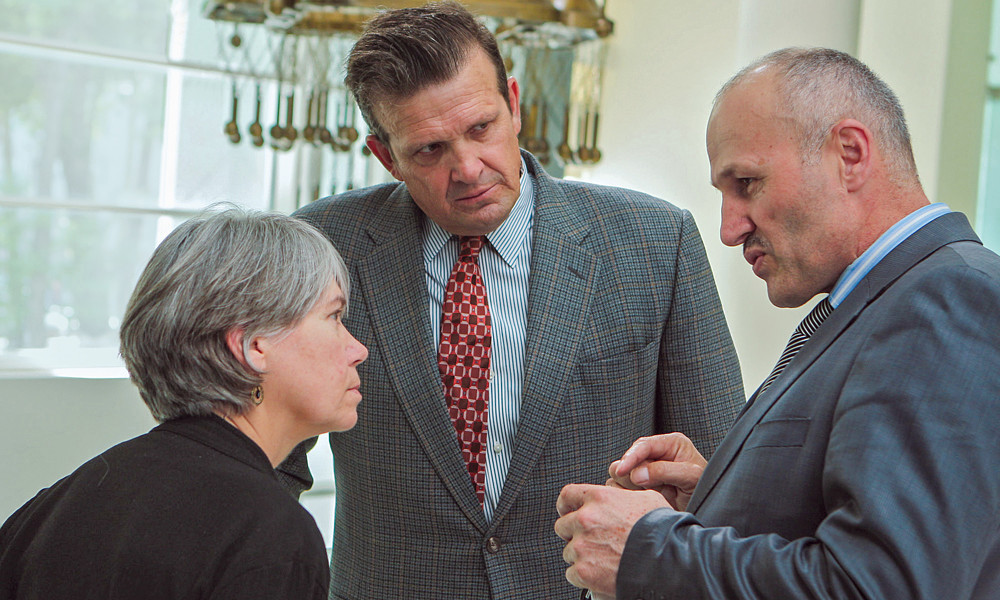
SUMMARY: A force in the mine-action sector, Dr. Suzanne Fiederlein retired from the Center for International Stabilization and Recovery in February — making an impact on campus and around the world.
A veteran globetrotter, Dr. Suzanne Fiederlein pulled out her U.S. passport 15 times to enter the country of Jordan while representing JMU — a number that doesn’t include the 21 other countries she visited during her 26-year career in humanitarian mine action at the Center for International Stabilization and Recovery.
|
“Suzanne’s stewardship has provided valuable experiences for graduates as they explore international security and humanitarian assistance-related careers. — Dr. Anthony Tongen, vice president for Research, Economic Development and Innovation |
Fiederlein joined CISR in 1999 as a senior research associate and victim-assistance team leader. In 2010 she became the associate director, and in 2020 she took over as its director. Five years later, as retirement sets in, she’s working to clean out more than two decades’ worth of files and memorabilia, while also looking forward to beginning a new life chapter in Harrisonburg with her husband, Dr. David Pruett, professor emeritus of mathematics.
“I don’t think there will be a lack of things for me to do,” Fiederlein said. She doesn’t rule out the prospect of consulting work in mine action but speaks enthusiastically about having enough free time now for her local passions: supporting immigrants in the Shenandoah Valley and engaging in climate protection. “The challenge might be to not let myself get overextended.”
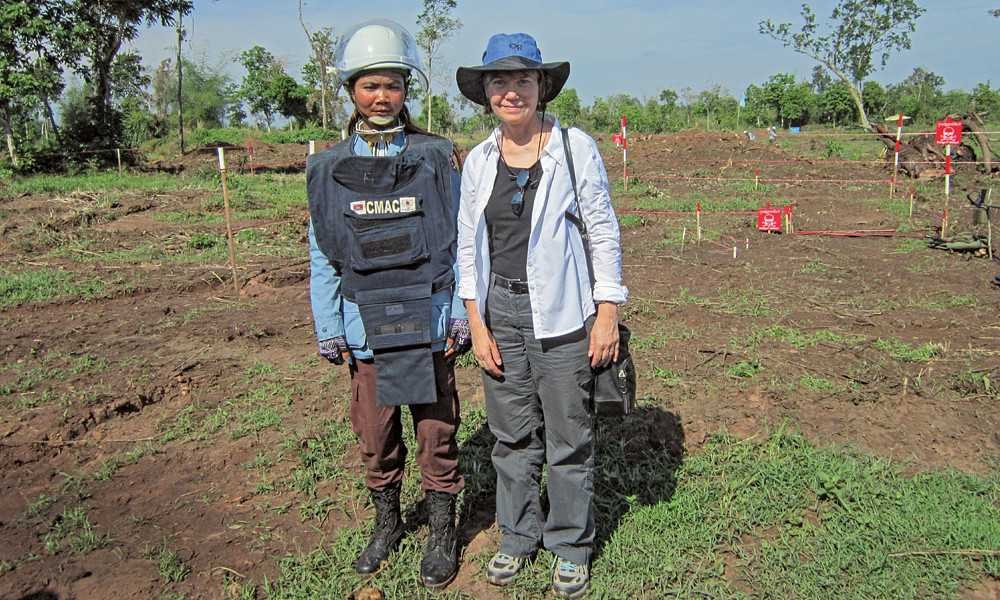
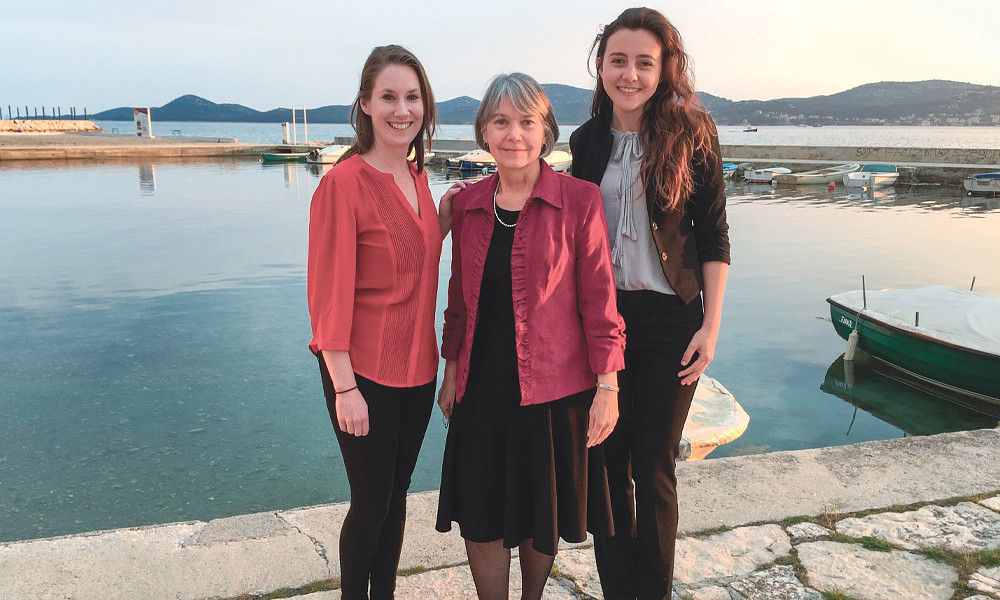
Looking back on her journey with CISR, Fiederlein managed a multitude of mine-action projects and programs. Early in her career, she supported the development of the International Mine Action Standards and managed its website for 10 years. Fiederlein also served on the IMAS Review Board and the editorial board of The Journal of Conventional Weapons Destruction.
She began overseeing recruitment for the Frasure-Kruzel-Drew Memorial Fellowship program shortly after it started in 1999. The fellowship is an opportunity for fourth-year students, graduate students and recent graduates to apply for and serve in the Office of Weapons Removal and Abatement in the U.S. Department of State’s Bureau of Political-Military Affairs.
“Suzanne’s stewardship of the FKD Fellowship has provided valuable experiences for graduates — 41 to date — as they explore international security and humanitarian assistance-related careers at the State Department,” said Dr. Anthony Tongen, vice president of Research, Economic Development and Innovation at JMU.
“Her leadership in humanitarian mine action has also helped establish CISR and JMU as the premier source for management training in the field, demonstrated by comprehensive trainings delivered to nearly 400 senior managers representing 58 countries,” he said. Since 2004, Fiederlein directed and coordinated the trainings known as the Senior Managers’ Courses in Conventional Weapons Destruction, hosted 11 times at JMU and seven times internationally.
These courses took place through a collaboration with JMU faculty, particularly from the College of Business; local implementing partners; and sponsoring organizations including the State Department and the United Nations. As Fiederlein often states, CISR’s work is based on collaboration with many partners at JMU and outside it, both in the U.S. and abroad.
For Fiederlein, running into former trainees on work trips was a personal highlight and a rewarding, full-circle moment. “When I go around to international meetings, whether they’re in Geneva or recently in Cambodia for the Fifth Review Conference of the Anti-Personnel Mine Ban Convention, there are like 40 people there that I had trained over the years. So it’s really cool to see them. They say, ‘Dr. Suzanne!’”
During her trips to Jordan, she helped implement We Love Life!, a psychodrama and creative arts program educating youth on the dangers of explosive remnants of war while promoting safe behaviors. A total of 29 performances at 18 locations were conducted in mine-affected areas of Jordan, reaching nearly 16,000 people. “We had a second We Love Life! in 2014 that was focused on schoolchildren in northern Iraq and Syrian refugees — adults and children both,” Fiederlein said.
Some of her most interesting research took place in Central America — a region that was declared mine-free in 2010 — where she examined the connection between mine-clearance programs and peacebuilding. “In Guatemala, the former guerrillas worked closely with the military units through the volunteer firefighters, the bomberos. They were seen as sort of a neutral, trusted entity to reach out to all the communities to engage them in risk education and get information from them on what they know about where there are dangerous munitions that needed to be cleared.”
She also closely investigated the effects of the environment on landmines in the ground in the 2010 Landmine Aging Study: “Under what circumstances do they continue to function as intended? Do they become more dangerous or less dangerous over time?” More recently, Fiederlein’s team published a 2025 report on the aging of underwater munitions.
During her tenure at CISR, Fiederlein worked extensively on efforts to enhance the effectiveness of casualty data collection and management as lead researcher and author of the Landmine Casualty Data: Best Practices Guidebook.
“I’ve been around long enough that I can see shifts in emphasis as far as a country’s focus and what the issues are within the sector.” A constant challenge facing Fiederlein and her peers was the need for reliable data, especially in the early days of mine action, when information was collected and recorded on paper. “There’s always been this quest to improve data collection, management and analysis to actually inform future decision-making for programs,” she explained.
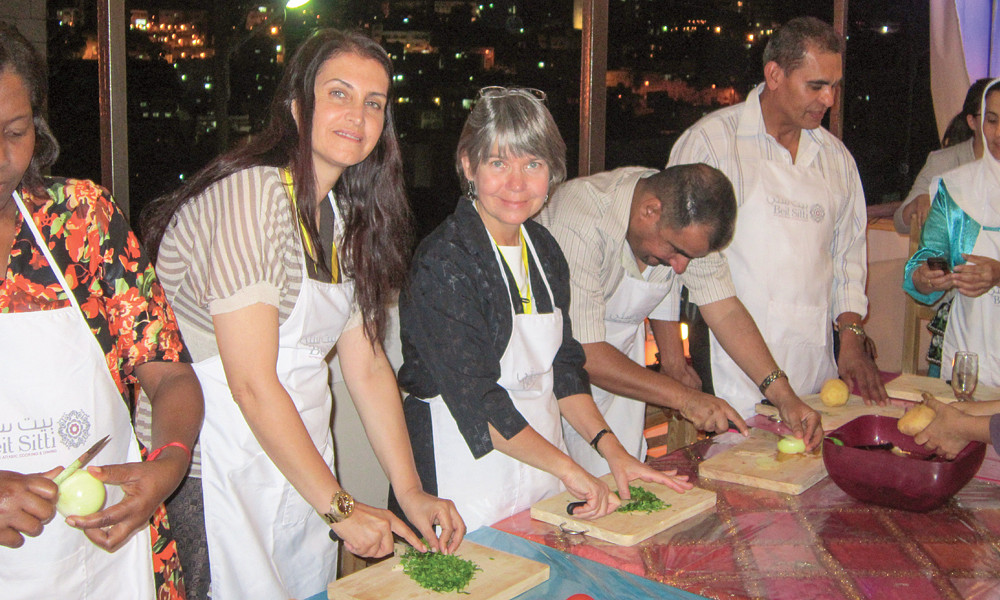
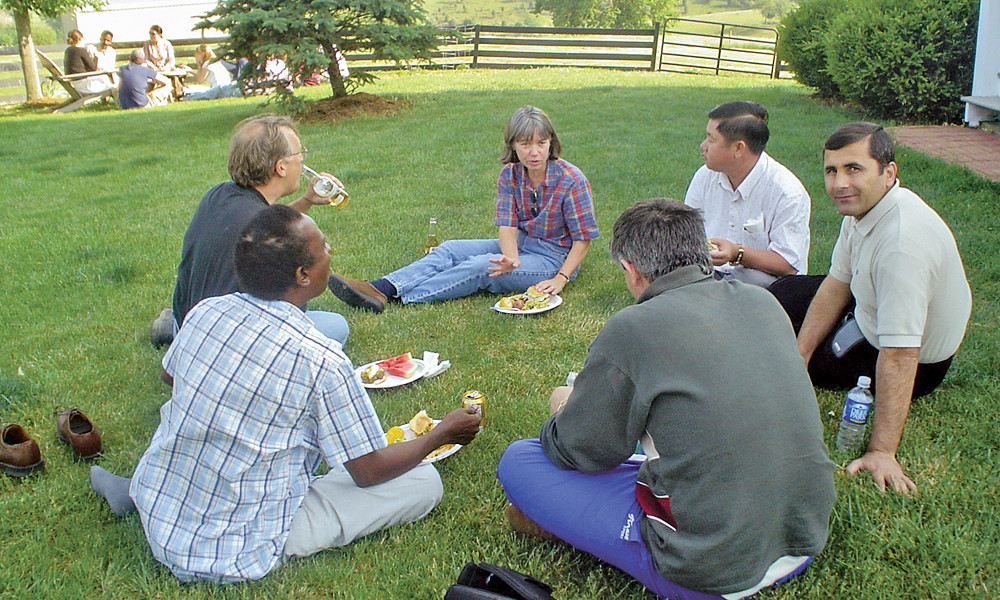
Fiederlein points out another unwavering obstacle — the fact that CISR was established at JMU in 1996 as a grant-funded center. “While you’re carrying out a project and wanting to make it as successful as possible, there’s always the pressure to seek new grants and write new grant proposals,” she said. Fiederlein steered the nonprofit in evolving and expanding efforts outside of mine action, namely capacity-building projects with the American University of Kurdistan and the Young African Leaders Initiative, as well as a refugee program with Harrisonburg High School Peer Leaders.
In February, Buddhist scholar Dr. Christie Kilby of the Department of Philosophy and Religion stepped into Fiederlein’s former role, but the future of CISR remains uncertain due to recent budget reductions at the Department of State.
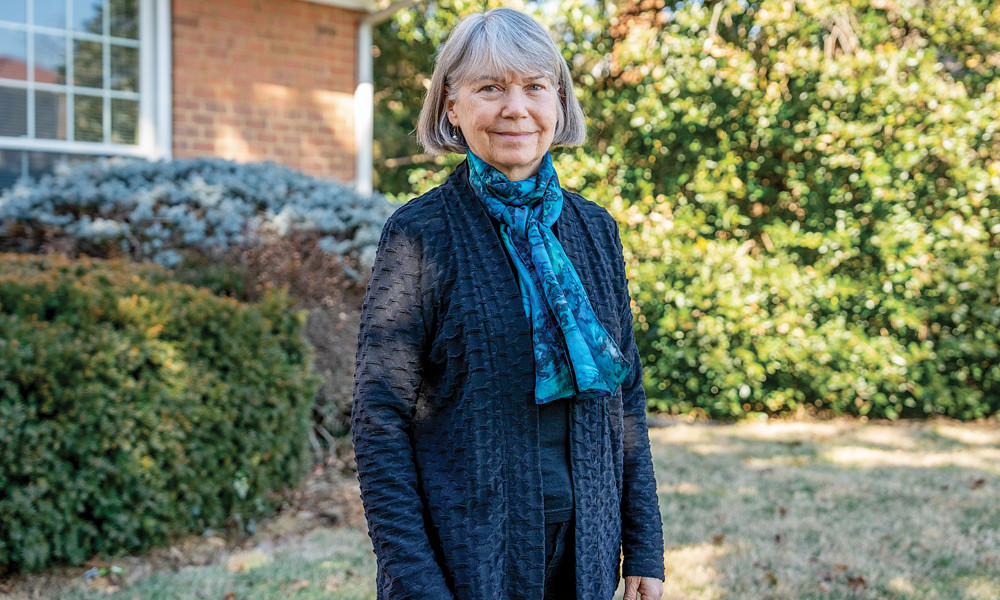
In 2017, Fiederlein received JMU’s Woman of Distinction Award upon nomination by the CISR staff. At her retirement party in late January, Fiederlein’s right hand, Assistant Director Nicole Neitzey (’02, ’15M), remarked, “Don’t let her height fool you — she is small but mighty, fierce and fearless, and she confidently takes her seat at the table in a field that has historically been dominated by men. At the same time, she is kind and loyal, leading with empathy and compassion. She is truly one of a kind: an incredible leader, colleague, confidant, mentor and friend.”
|
“She is small but mighty, fierce and fearless, and she confidently takes her seat at the table in a field that has historically been dominated by men. — Nicole Neitzey (’02, ’15M), CISR assistant director |
Whether venturing to Vietnam or Tajikistan, Fiederlein and her colleagues improved livelihoods through recovery, rebuilding and resilience, and her legacy cannot be overstated. “Suzanne’s dedicated efforts and collaborative approach have left a lasting impact both here at JMU and in communities around the world,” Tongen said.
“I will miss [Suzanne’s] passion for the mine-action sector and the people in it,” Neitzey said. “She has set the bar incredibly high when it comes to being a boss and the head of CISR.”
“At my retirement event, I mentioned that people often ask me what I like most about my job,” Fiederlein said. “And I always say, ‘It’s the people.’”
EDITOR’S NOTE: Amy Crockett (’10) worked at CISR for 12 years before becoming a deputy editor and production manager for University Marketing and Branding.

